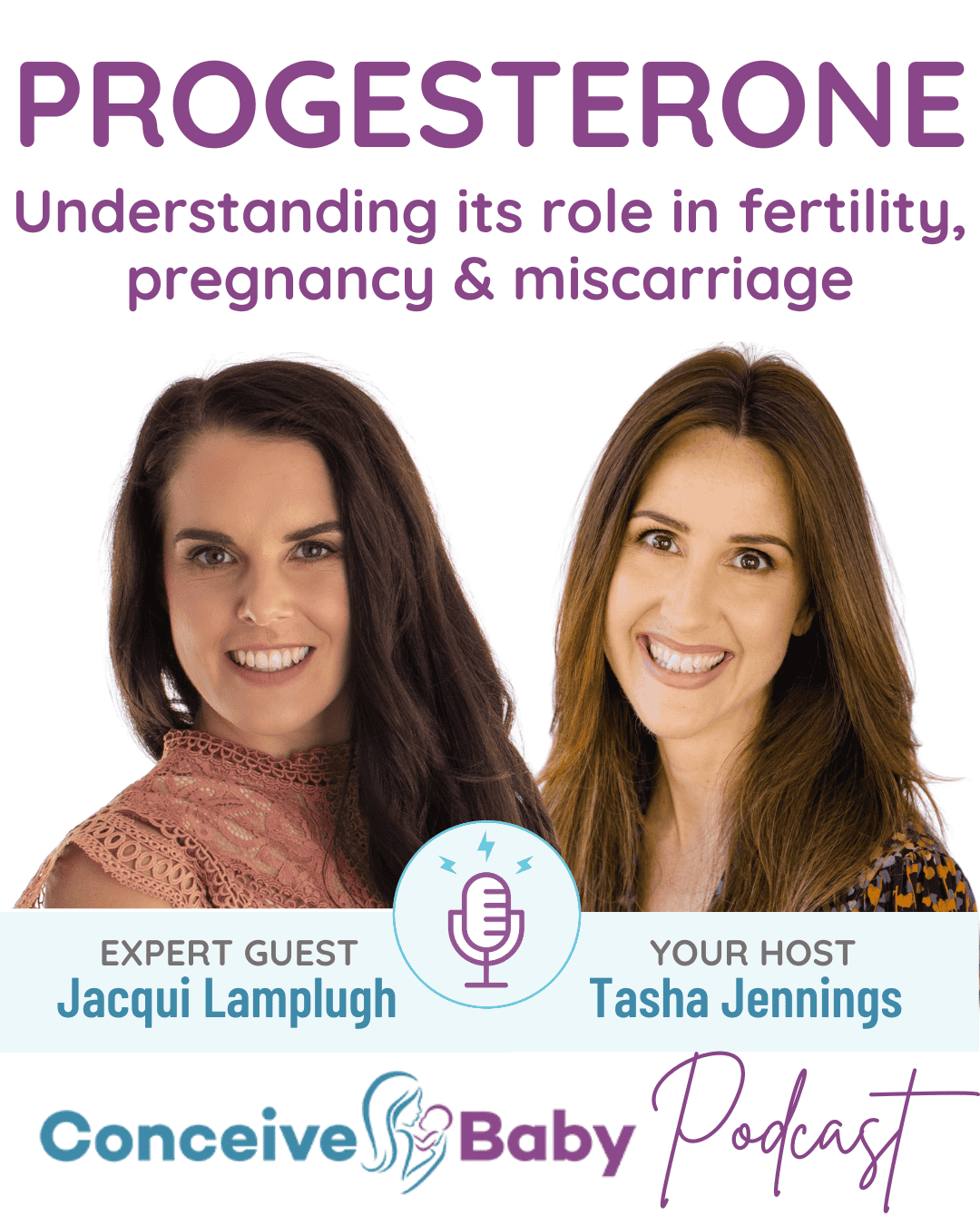
In this episode of the Conceive Baby podcast, I am joined by fellow fertility naturopath Jacqui Lamplugh to discuss the role of progesterone in fertility, pregnancy and miscarriage.
We hear a lot about the importance of progesterone but is low progesterone a cause of miscarriage, or is it a symptom of an underlying issue? What does progesterone actually do? How can you support low progesterone levels? We unpack all this and more, giving you specific insights into how you can help improve hormone balance and reduce your risk of miscarriage.
Jacqui Lamplugh is a fertility naturopath and reproductive medicine expert. With over a decade of experience, Jacqui specialises in miscarriage prevention and supporting women experiencing pregnancy loss. Her journey into this field was shaped by her own experience with early pregnancy loss, which instilled in her a passion to provide better support and investigation into miscarriage causes.
Key Takeaways:
- Progesterone is essential for maintaining a pregnancy but is not the primary marker for pregnancy success; its levels can fluctuate.
- Low progesterone is often a symptom rather than the root cause of a miscarriage; its levels typically drop when a pregnancy is non-viable.
- Potential signs of low progesterone include a short luteal phase, luteal spotting, and symptoms like PMS, pointing towards further investigation.
- Lifestyle and nutritional supplementation, such as with vitamin B6, vitamin C, and Chaste Tree, can support progesterone levels but should be part of a comprehensive fertility plan.
- Testing for progesterone levels should be conducted seven days post-ovulation for accuracy.
Notable Quotes:
- “Progesterone is that like pro-gestation hormone and it is there to hold that endometrial lining steady waiting for implantation.”
- “We can’t ignore the importance of thyroid; an underactive thyroid can impact progesterone levels.”
- “Even if it is chromosomal issues as to why the miscarriage happened – there are markers we can be testing.”
- “Bad luck is not a diagnosis; it’s not a treatment plan.”
- “With the science and knowledge we have, we can identify the cause of 99% of miscarriages.”
Resources:
- More about Jacqui Lamplugh’s work: http://www.jacquilamplugh.com
- Episode mentioned – Fertility and the Immune System with Professor Sarah Robertson
